Eyewitness Investigation: Animals Paralyzed, Struggling to Breathe, Left for Dead at Petland Supplier
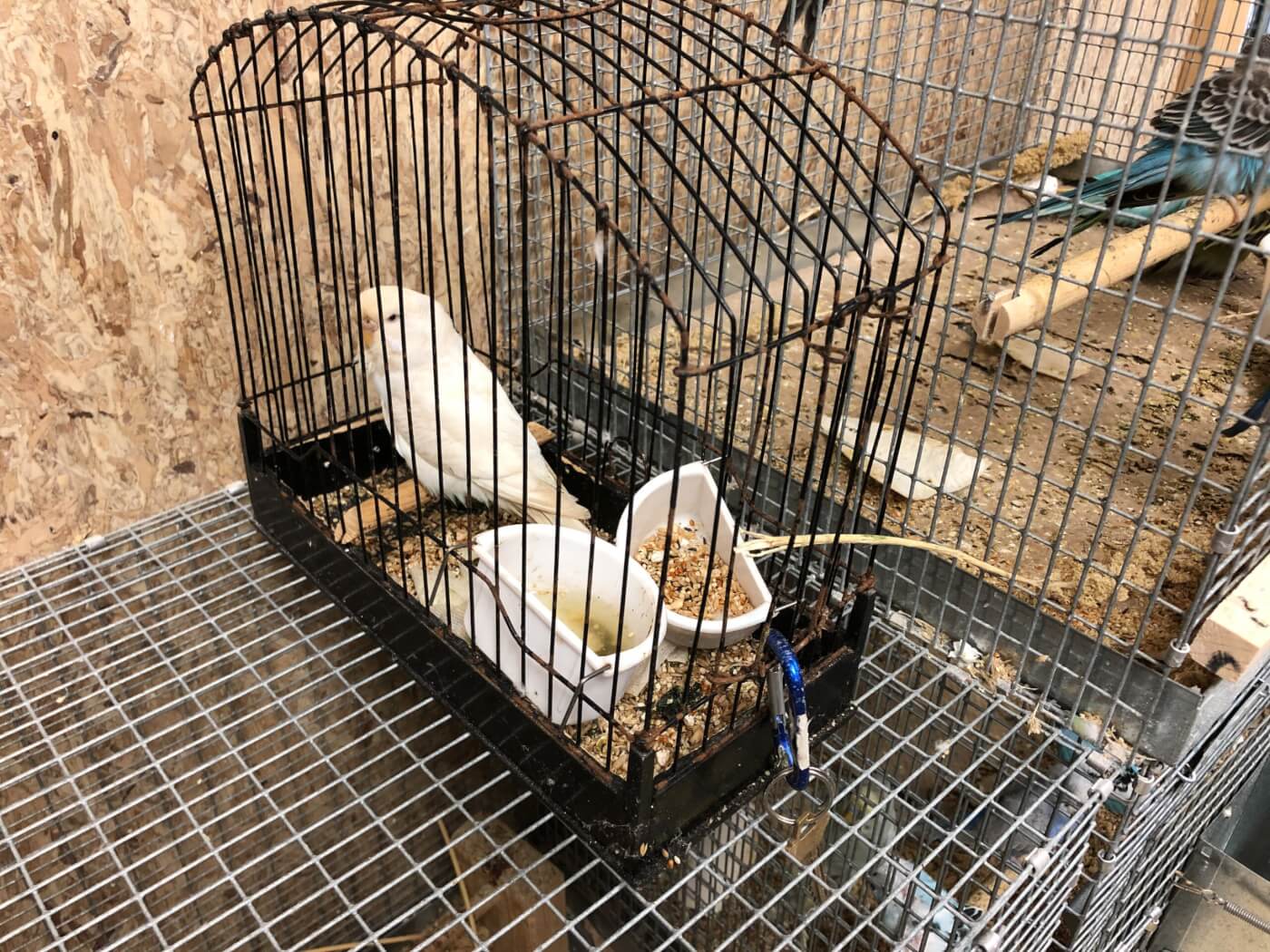
An eyewitness who worked at Great Pets—a breeding facility in Licking County, Ohio, that supplies birds and guinea pigs to the pet trade—discovered that conditions for animals were anything but “great.” Guinea pigs and birds were denied adequate care for upper respiratory infections, paralysis, and other ailments. They were crammed into dark, filthy cages or kept alone in small plastic tubs and even left to die.
Animals bred by Great Pets are sold at Petland, a pet store chain with locations across the United States, Canada, Mexico, and more.
Traumatized, Paralyzed, and Left to Die
Animals at Great Pets were routinely—and sometimes fatally—denied adequate veterinary care.
Two traumatized cockatiel chicks died after the facility’s owner rammed a gavage needle down their throat in a crude attempt to empty their apparently impacted or infected crop—the pouch at the base of a bird’s esophagus where food is temporarily stored—and flipped them upside down until they regurgitated. He admitted that this was “very hard on the birds” and said that a veterinarian he knew refused to perform the dangerous procedure, which could easily cause the birds to inhale their own vomit and die.
A worker left two apparently paralyzed newborn guinea pig pups without any care overnight, and one died. His littermate suffered for hours and was finally euthanized.
Early one morning, the same worker found that a mother guinea pig was in distress and breathing rapidly but failed to notify a veterinarian, who was on site, of her poor condition, and she died that afternoon. The next morning, her pup was cold, lethargic, and breathing heavily, but the worker failed to take him for emergency care, and he died, too.
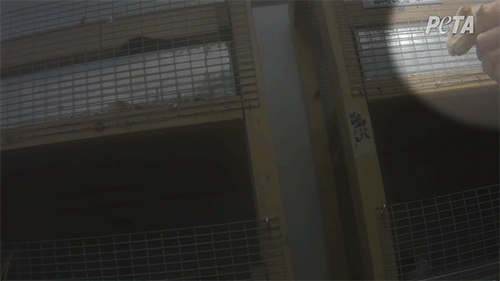
This apparently paralyzed guinea pig pup was found dead after a worker left him without care overnight.
Cockatiels and Guinea Pigs Suffer From Infections in Feces-Filled Tubs
Cockatiels who suffered from eye and upper respiratory infections and other illnesses were kept for weeks in small plastic tubs that lacked perches and adequate ventilation. Some appeared too weak and miserable to clean their tattered feathers, which were encrusted with discharge and likely feces from the dirty tub floors. Birds are fastidious and preen throughout the day to keep their feathers flight-ready as a matter of survival. As prey animals, they also hide illnesses, so when birds are visibly ill, they are critically ill, requiring immediate veterinary attention.
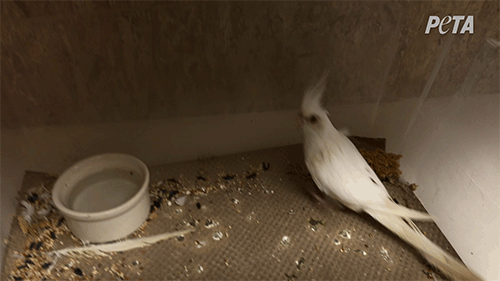
A guinea pig with a suspected upper respiratory infection struggled to breathe for at least three weeks before she was finally released from her suffering.
Another guinea pig apparently had a uterine infection or a dead pup still in her womb, but workers left her to languish for two weeks before her suffering was finally ended.
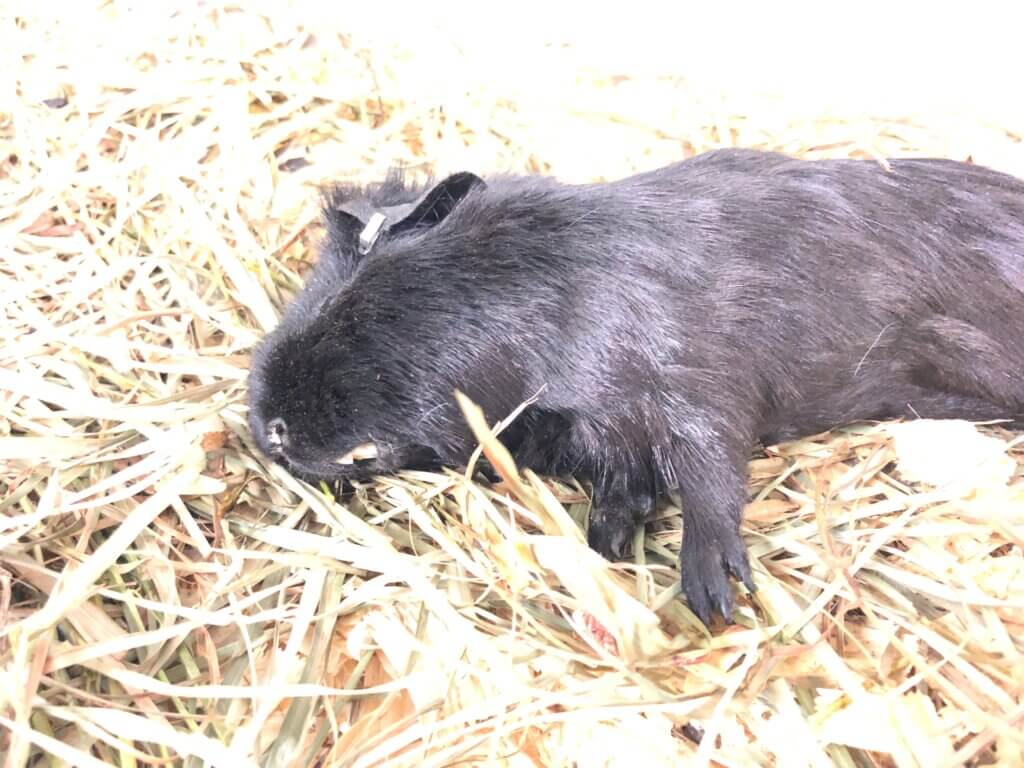
Guinea pigs used for breeding—like this mother who was found dead—had metal tags punched into their sensitive ears.
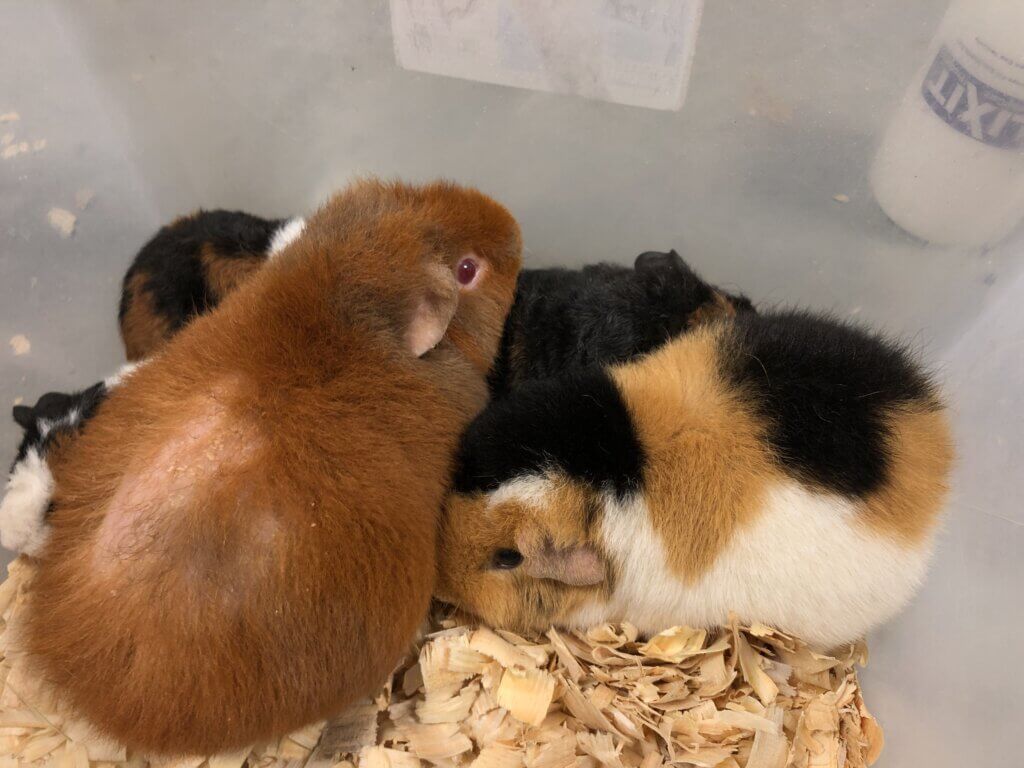
Even though fungal infections were rampant, a worker deemed this guinea pig with extensive hair loss and scaly skin “hormonal.”
Great Claims Cover Great Callousness
Great Pets claims to take “[e]xtreme measures … to provide every bird and animal the best … veterinary care.” But when the eyewitness asked if a bruised, bleeding young cockatiel would be seen by a veterinarian, the owner claimed that he couldn’t call a veterinarian for “every minor thing.”
At least 27 animals were found dead at the facility in less than six weeks. The owner dismissed the frequent deaths and widespread illness, saying, “We’ve got thousands of birds and animals. They won’t all live healthy, happy forever.”
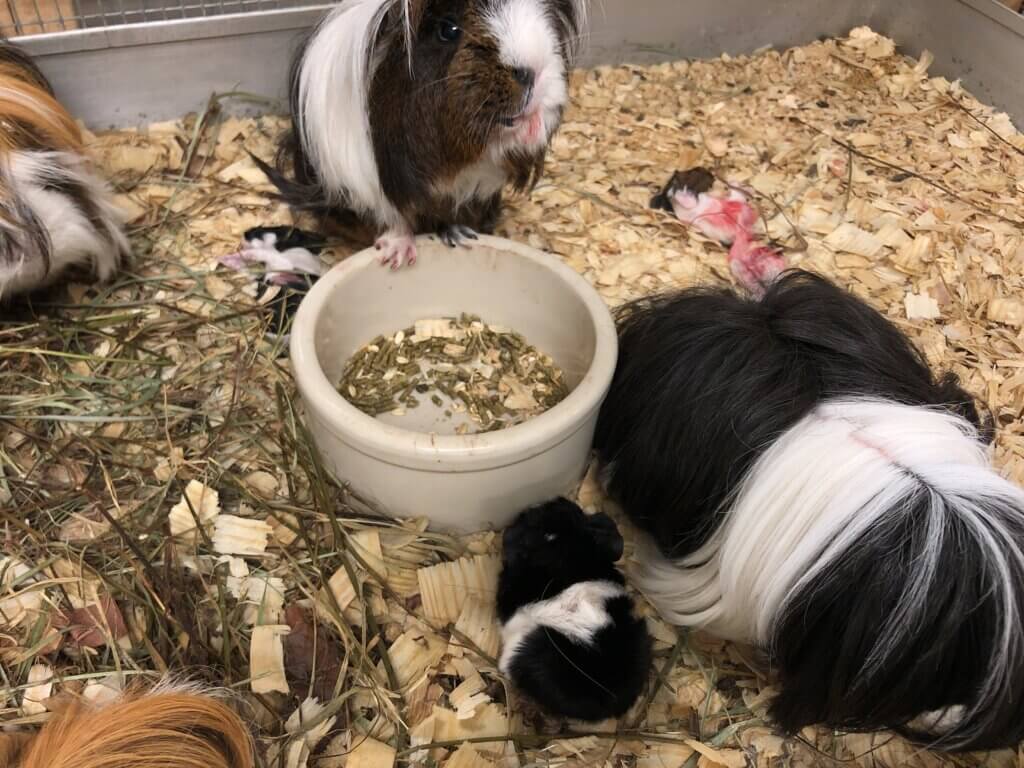
The eyewitness found that 27 animals died at the facility in a matter of a few weeks, including these guinea pig pups, one of whom had apparently been cannibalized—a sign of severe psychological distress resulting from chronic deprivation and crowding.
Parakeet Kept in a Cage So Small That She Couldn’t Even Spread Her Wings
Parakeets were crammed by the dozens into small, dark cages—a perfect breeding ground for disease. Severely stressed parakeets plucked their offspring’s feathers out, leaving bloody patches.
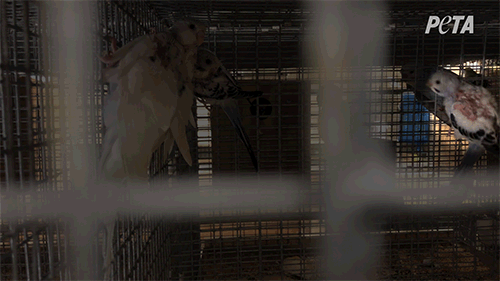
One frustrated bird—who a worker claimed had “murdered” other birds—was kept alone for days in a rusted, heavily soiled cage so small that she couldn’t even spread her wings.
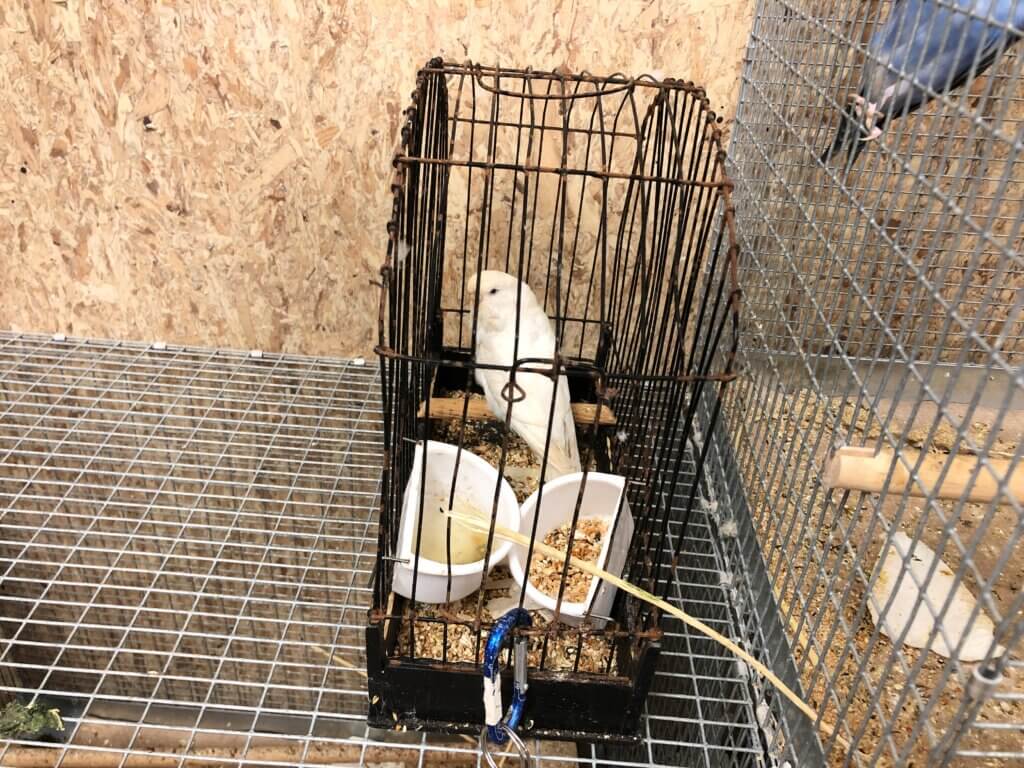
Workers kept this severely frustrated parakeet all alone for days in a filthy, rusty cage so small that she couldn’t even spread her wings.
More than 600 guinea pigs were kept in small metal tubs that were not sanitized for over four weeks and reeked of ammonia. They had nowhere to hide and nothing to chew on—both essential for prey animals whose teeth grow continuously.
“It is my professional opinion that the barren, overcrowded, and exposed enclosures to which these animals are contained are both inhumane and dangerous to animal health, predisposing these guinea pigs to psychological suffering from chronic deprivation and social stress, dental disease, and infection.”
—Heather Rally, D.V.M.
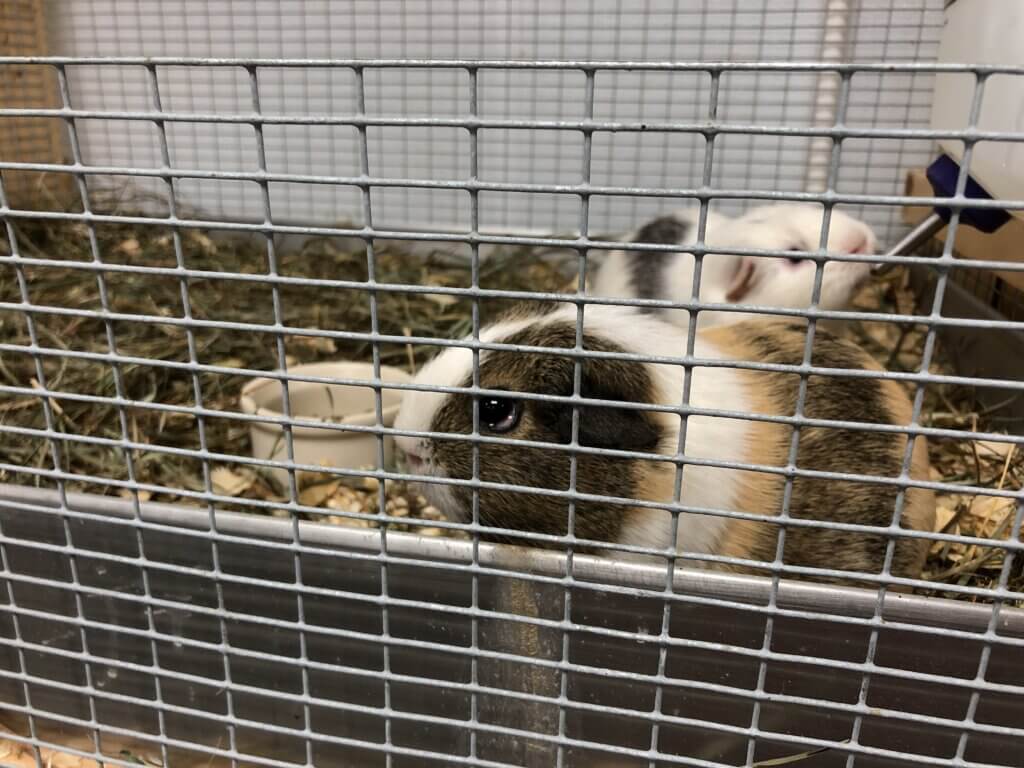
More than 600 guinea pigs, like this one, who had what a worker called “eye droop,” intended to be bred and sold in the pet trade, were crammed into small metal tubs that reeked of ammonia and weren’t sanitized for weeks.
No Surprise—Owner of ‘Great Pets’ Supplier Tied to SeaWorld and Circus-Style Shows
Before opening Great Pets, the owner trained and provided animals for circus-style shows, including at SeaWorld, and has a long record of Animal Welfare Act violations, including for denying animals adequate veterinary care and access to shelter, confining them to unsafe cages, and keeping social primates in solitary confinement.
At Great Pets, Amazon parrots Captain and Stevie—who a worker said were formerly used in the owner’s animal acts—were kept in barren cages. Dr. Pratikshya Patil, a veterinarian who reviewed photographs of these birds’ living conditions, wrote that it “could be considered a form of torture” for highly intelligent parrots, who desperately crave mental stimulation and socialization.
According to a worker, Stevie was 70 years old, and both birds had become “something of an afterthought” since they weren’t being used as money-making breeders.
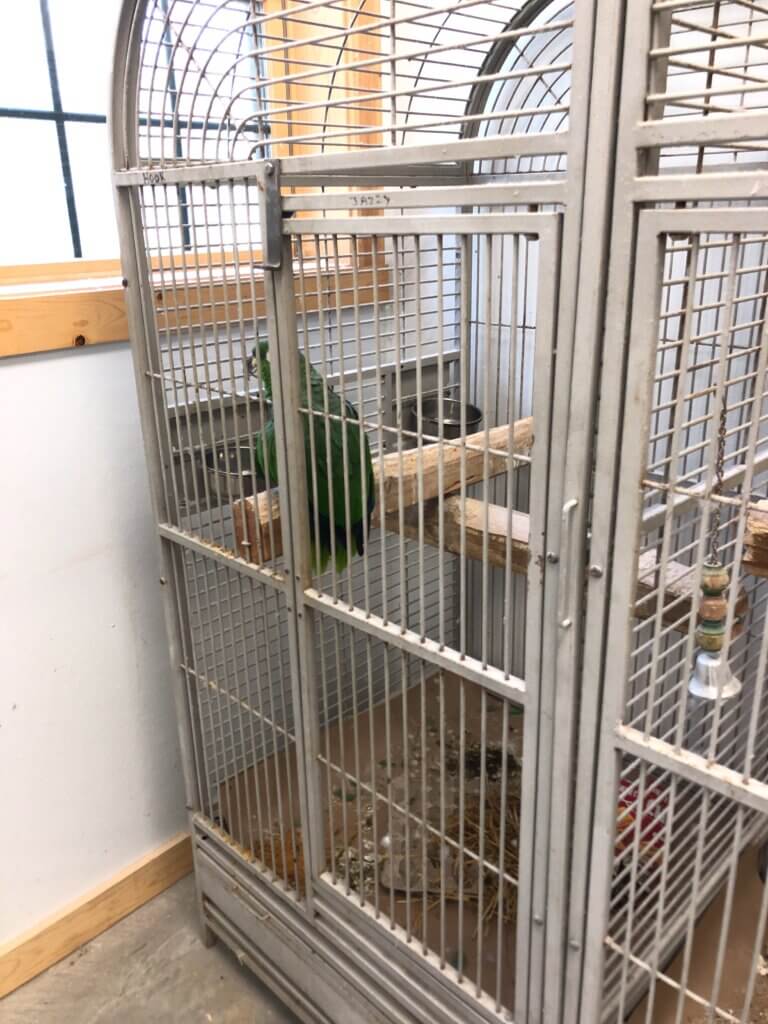
According to a worker, this Amazon parrot, Stevie, was 70 years old.
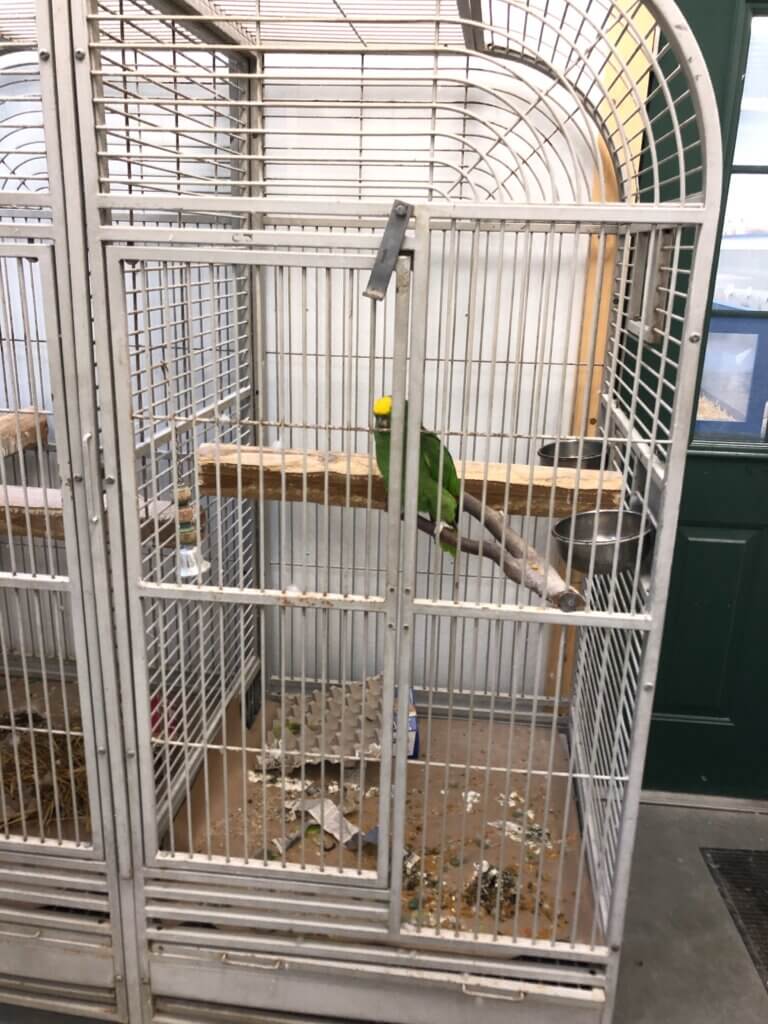
Highly intelligent and social Amazon parrots—including this one, named Captain—were kept in barren cages with little to no enrichment.
Supply Chain of Suffering: Stress en Route to Retailers Results in More Sickness
Each week, dozens of birds and guinea pigs were crammed into transport containers for distribution to Petland stores. The stores sometimes returned guinea pigs to Great Pets because of rampant fungal infections. A worker speculated that the stress of transport led to their symptoms.
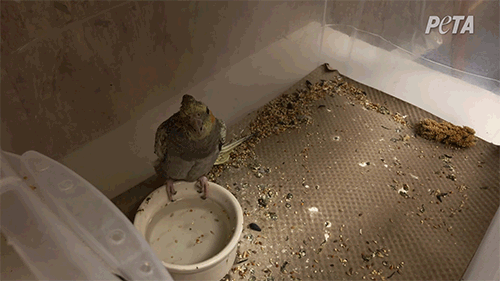
Sick cockatiels were kept in tiny plastic tubs with minimal air flow.
Workers also clipped birds’ wings—a practice that can cause them psychological and behavioral problems and leave them vulnerable to predators and injury.
Guinea pigs and birds have complex needs, but stores looking to make a quick sale often mislead customers about the time, money, space, and specialized veterinary care required to provide for them. Breeding factories like Great Pets keep churning out vulnerable animals whose suffering begins long before they reach the store shelves.
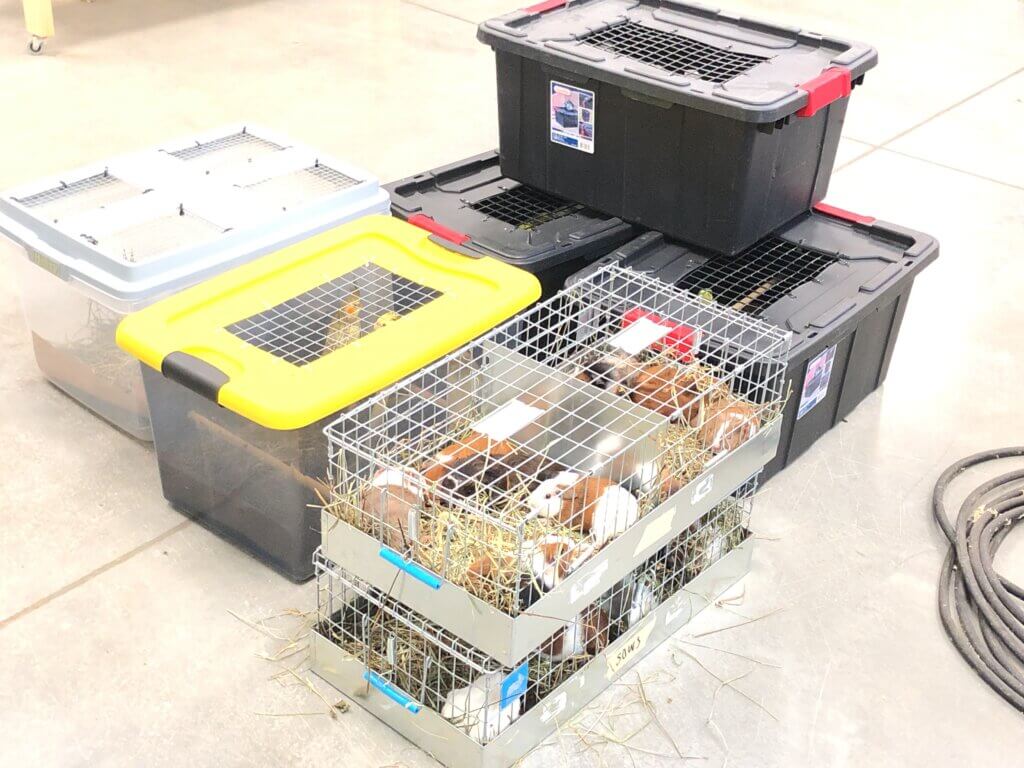
Some transport containers were poorly ventilated and stacked on top of each other.
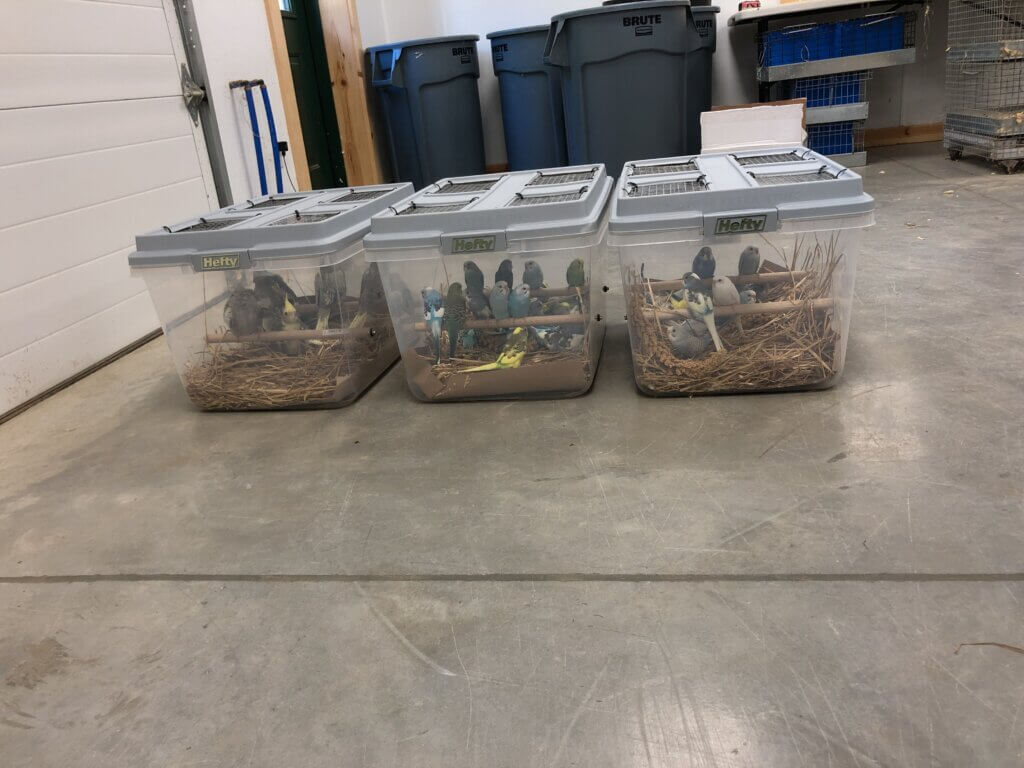
Animals were crammed into transport containers bound for Petland stores.
You Can Help Birds and Guinea Pigs!
Please join us in urging Petland to reconsider its relationship with Great Pets and stop selling live animals altogether.
And if you’re planning to welcome an animal into your family, please adopt from an animal shelter or adoption organization—never buy from a pet store or breeder.
Click here to share your gratitude with the investigator who uncovered this cruelty. If you think you have what it takes to carry out undercover investigations like this one, we want to hear from you.